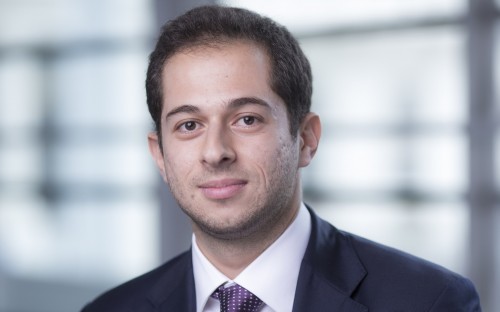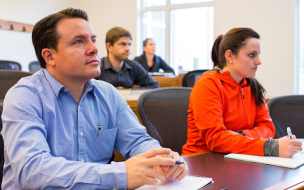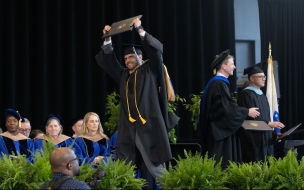Attending business school before the age of 30 had always been his plan, so that he could expand his skill-set and have the option to switch careers.
In this interview, George explains that the MBA program at Imperial College Business School has provided him with a well-rounded educational experience, which has pushed him to grow in unexpected ways.
You've been in finance since 2007 – what were the key factors you considered when choosing an MBA program?
An MBA before [the age of] 30 has been a career plan all along. That's why I decided to broaden my skill-set and supplement my learning on the job with an education from a world-class, international business school.
In addition, pursuing an MBA would give me a head start in developing leadership capabilities, and prepare me for future roles not exclusively related to my financial background.
I saw an MBA as the final preparation before taking on new challenges and possibilities.
Why did you pick Imperial over other business schools, and were you sure you wanted to study in London?
I felt that my profile and background, as well as my career aspirations, fit in much more with Imperial's ethos. My rationale when joining Imperial was to be able to provide myself with an innovative and entrepreneurial outlook on business, by learning from the very best professionals and academics.
Imperial Business School's approach to innovation also means that you get to apply your learning to actual projects; an example of which is the Innovation Challenge – we get to tackle a real-life case with other Imperial faculties [such as] natural sciences, engineering and medicine, and provide a solution.
These links with the wider university meant that I could explore unique opportunities, including working with start-ups and taking on consulting projects, both of which allowed me to [develop] different viewpoints.
The school’s location strengthened my choice, due to the exposure that such a city provides, both from a professional and living experience. London is home to the European HQs of some of the biggest companies, and we regularly go to such companies for talks or seminars on the issues that markets are facing today.
London’s start-up scene is also the strongest in the area. London allows a cultural experience like no other – sealing the deal in terms of location choice.
Why would you recommend Imperial to other MBA applicants?
Our alumni come from all walks of life. An MBA at Imperial would mean experiencing and learning from diversity at its finest. A lot of our graduates go into entrepreneurial ventures – non-traditional roles are a possibility.
Imperial also has great teaching faculty and we regularly get to discuss case studies and research directly with teachers. Imperial emphasizes its research strengths and capabilities, a recent example [being] the launch of the Brevan Howard Centre for Financial Analysis.
The positive feedback I got when mentioning Imperial as one of my options just couldn’t be ignored.
Are there any skills that you have acquired on your MBA that have surprised you?
Exposure to Imperial’s fast-paced learning environment bred knowledge, and confidence in taking decisions and action in uncertain situations.
I have grown to value agility, as well as the appreciation that you do not have to be completely confident in order to make a decision, but rather incorporate various risks into the decision-making process.
Time management skills have also been developed, mainly due to the wide range of activities one can experience within the MBA year [in a short space of] time. This meant that I had a better understanding of my priorities and what choices I needed to [make] to improve my career prospects and goals.
Being part of a start-up team working on bringing an idea to market allowed to me develop a different understanding of business: by learning how innovators look at things differently, and how the dynamics change in a start-up environment.
I was also lucky enough to [help] develop the actual business model, and [to] look at things from a “non-financial” point of view – vital experience [for] taking on innovative ventures in the future.
Student Reviews
Imperial College Business School
RECAPTHA :
48
ba
51
a1







